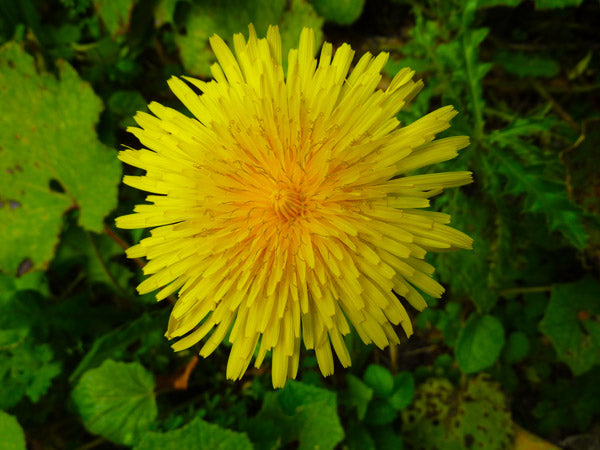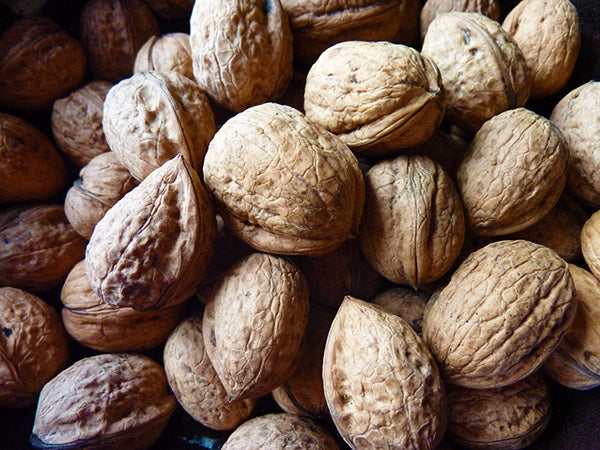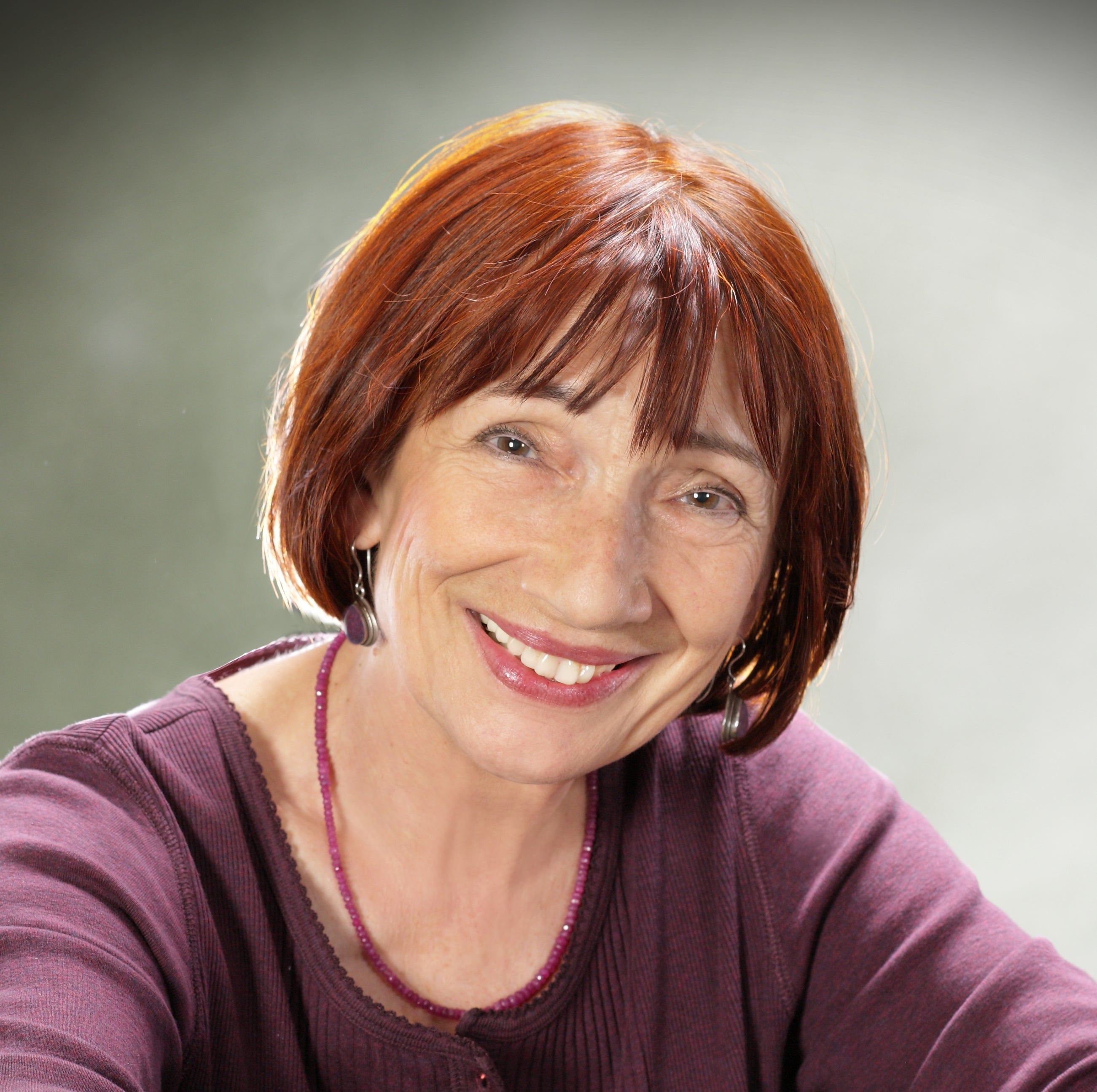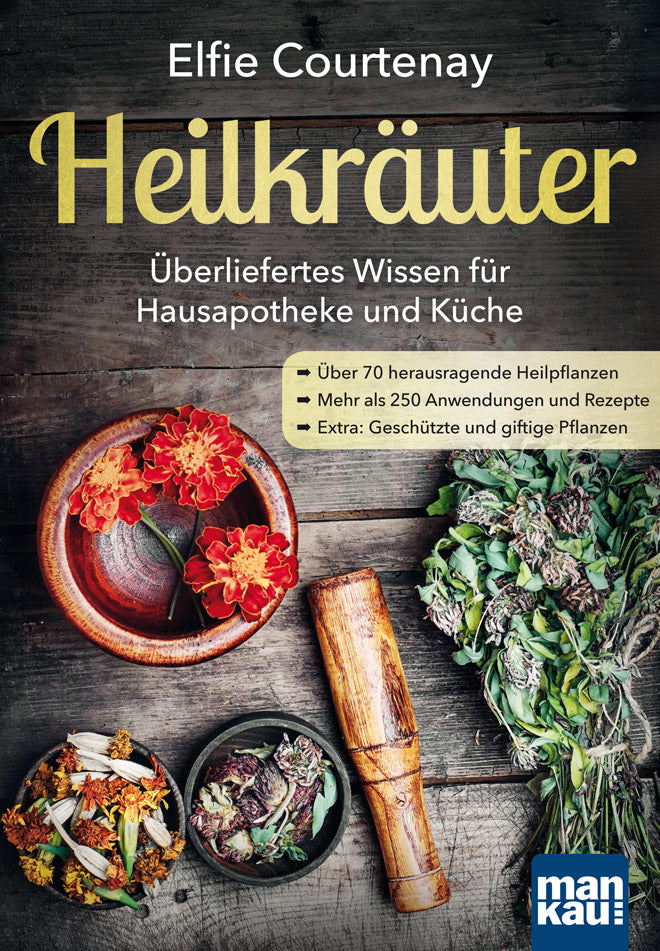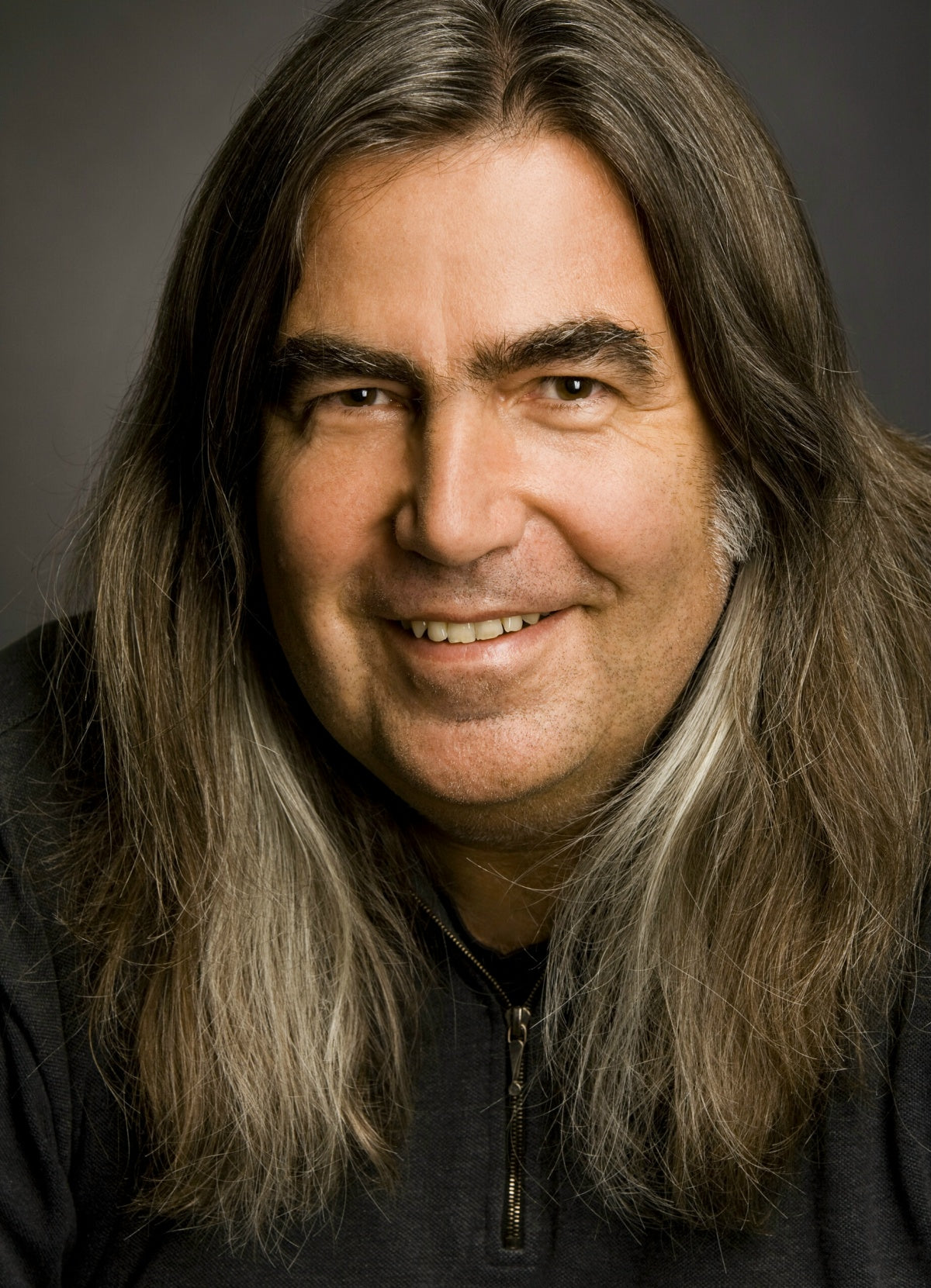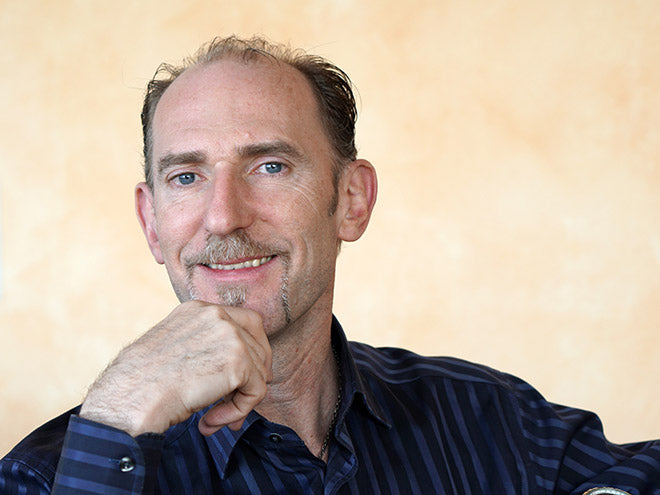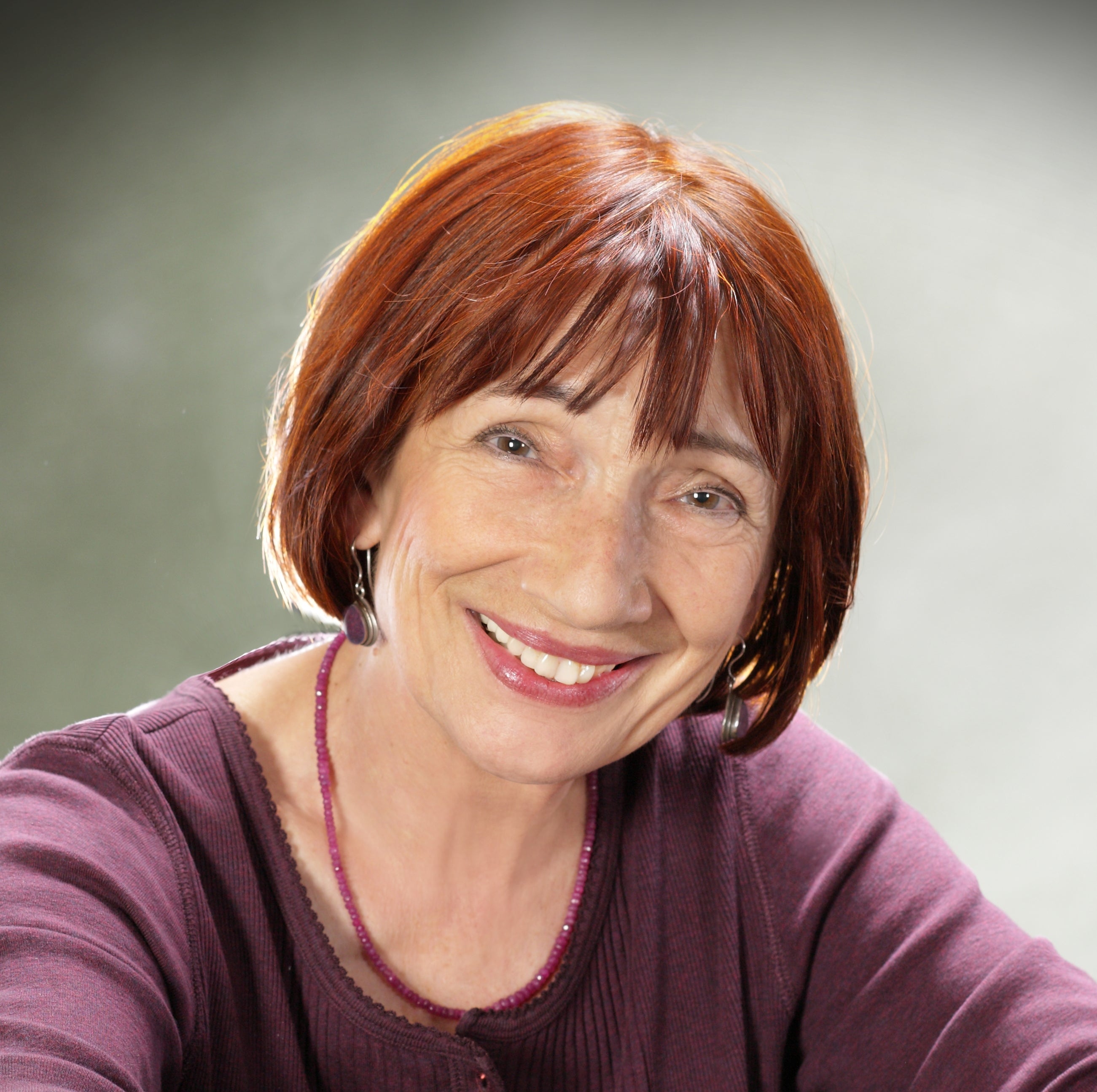
"Look at our nature with new eyes and use its healing power!"
"Look at our nature with new eyes and use its healing power!"
Interview with herbal educator and expert Elfie Courtenay
"For our ancestors, it was natural to rely on 'empirical medicine' and to use the traditional knowledge of herbal medicine when dealing with illnesses and complaints. Much of this wealth of experience has been lost; but it is up to us to (re)discover everything that nature has in store for us, to appreciate these gifts, to respect their true value and to use their healing power wisely!"
The herbal expert Elfie Courtenay, author of the book “Medicinal Herbs – Traditional Knowledge for the Home Pharmacy and Kitchen”, conveys the practical experience of many generations for the collection, processing and use of medicinal plants in traditional herbal medicine, but also for a vital, healthy diet.
As an experienced wild herb expert, you have been accompanying interested people into nature for over 20 years. What motivates you and what do you want to achieve with the participants?
Elfie Courtenay: I am happy when I can bring nature closer to interested people. Many people gain a completely new perspective on natural relationships. The knowledge gained can lead to an appreciation that helps people to treat nature more carefully and consciously.
Your new book "Medicinal Herbs - Traditional Knowledge for the Home Pharmacy and Kitchen" aims to show the wonderful abundance that nature produces if you let it. Where can you still collect medicinal herbs today, and what prior knowledge do you need to have?
Elfie Courtenay: The most important thing is to develop a trained eye and at the same time to gain your own experience: which herbs grow on which soil, at what time of year, under which lighting conditions, etc. In addition to theoretical knowledge, you need time and patience, because it's not just about identifying and collecting, but also about learning how to handle the various herbs, i.e. the whole process of processing and using them.
For our ancestors, it was something completely natural and self-evident to observe nature and learn from it which plants could be used in what way. How was this knowledge passed on and how can it be preserved for the future?
Elfie Courtenay: The herbal medicine of our ancestors could be described as a purely empirical medicine that has developed and deepened over many generations. This knowledge was originally only passed on orally, mostly from mothers to daughters. Much has certainly been lost in the meantime, but I found it really exciting to find old sources that I could use for my book. Interest in natural healing seems to be constantly increasing these days and is a wonderful prerequisite for preserving this old knowledge that is still available today for the future.
There are also medicinal plants that are harmful to humans and even deadly poisonous. Can you give a few examples? Can you still use them yourself?
Elfie Courtenay: Reactions to plant toxins can range from stomach pain, cramps and vomiting diarrhea to liver damage, respiratory paralysis or organ failure. Of course, it all depends on the type of toxin and the amount consumed. Ivy and elderberry leaves, for example, are "mildly poisonous"; nevertheless, they were used in folk medicine in the past, and ivy extracts can still be found in some cough syrups today. The situation is different with foxglove and autumn crocus, both of which are fatal even in small quantities. Nevertheless, they are very useful in ready-made medicinal preparations or in homeopathic applications. Of course, you should never collect and use poisonous plants yourself!
Collecting medicinal herbs has become just as popular as “going mushroom picking”. What should you pay particular attention to when searching for and harvesting herbs yourself?
Elfie Courtenay: Before you start collecting anything, you obviously need to do your research. The most important rule is to never eat anything that you haven't clearly identified! And of course it's important to use a trained eye to determine whether the soil where the plant is growing is really clean and natural. Just like with mushrooms, herbs should only be collected in a targeted manner: no poisonous ones and never from sprayed or over-fertilized meadows, not from the side of the road, from railway embankments or from dog walking paths!
Medicinal herbs can be used in many different ways in the medicine cabinet or in the kitchen. What options are there for storing herbs properly and preserving them?
Elfie Courtenay: There are so many possibilities. You can dry herbs, put them in vinegar, oil or alcohol, layer them in honey, sugar or salt, make jam, jelly or syrup, make liqueurs, ferment them and much more. Freezing is also an option, but is not advisable for all herbs. They can be stored in jars, tins, cloth bags or paper bags. Some plants have to be stored airtight because they attract humidity and would otherwise go mouldy.
Nature is a valuable resource that we can use, but we must not plunder it, destroy it or treat it carelessly. What can everyone do to preserve this wealth?
Elfie Courtenay: Unfortunately, large parts of nature have already been destroyed. This is already clearly evident in the monotony of our landscapes and the drastic reduction in biodiversity. In my book, I repeatedly talk about which herbs can be easily grown in the garden, on the balcony or in a planter. This way, the seeds can be returned to nature and at the same time we provide small biotopes for bees, bumblebees and butterflies. Everyone can do something to preserve or create habitats for insects, even in the smallest of spaces. There are also useful initiatives such as "Blooming Landscape", "Edible Cities" or "Sun Fields"; you should find out more about such projects.
Book tip:
Elfie Courtenay: Medicinal herbs. Traditional knowledge for the medicine cabinet and kitchen. Over 70 outstanding medicinal plants, more than 250 uses and recipes, extra: protected and poisonous plants. Mankau Verlag, 1st edition May 2017, flexi-brochure. 16.8 x 24 cm, 254 pages. 20 euros (D) / 20.60 euros (A), ISBN 978-3-86374-346-8.
Link recommendations:
More information about the guide "Medicinal Herbs"
To the reading sample in PDF format
More about Elfie Courtenay
